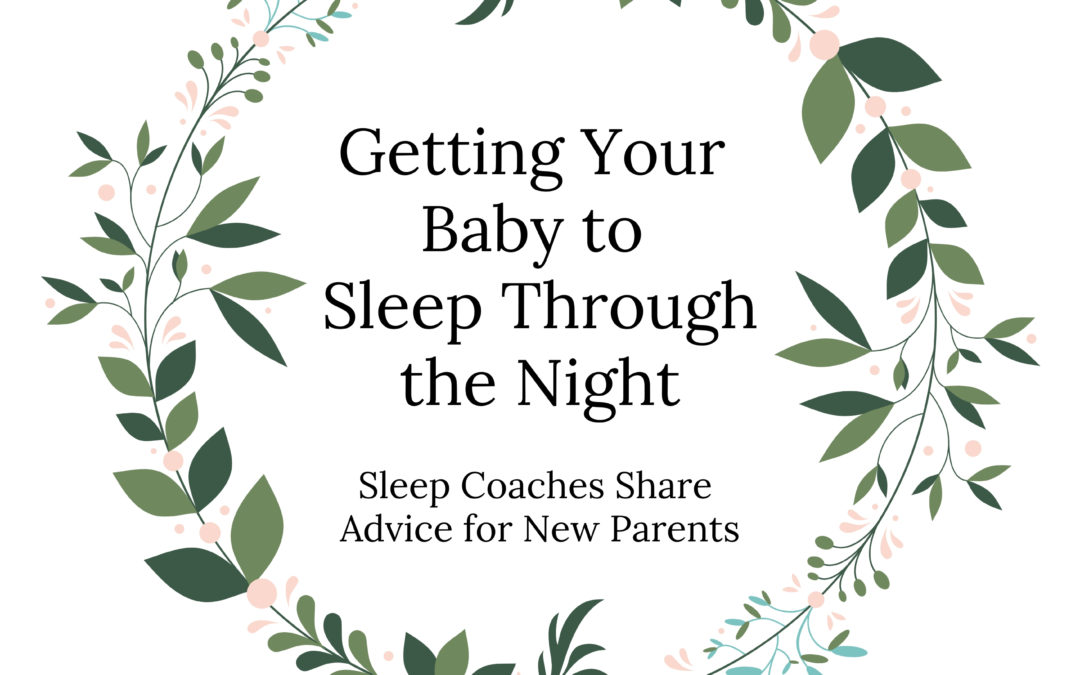Many mothers will agree that one of the most important things for themselves and their infants is sleep. Sleep can often be a battle, though, because while infants, especially newborns, spend a large portion of their time sleeping, they sleep in shorter increments than their parents.
According to Stanford Children’s Health, newborns sleep about eight hours during the day and about eight hours at night, though often not sleeping more than one to two hours at a time. Most babies don’t start sleeping through the night without waking until they are about three months old.
This somewhat erratic sleep schedule can affect parents greatly. How often a baby wakes up during the night directly determines how often a mother or father will also wake up. Mothers who breastfeed, of course, are more likely to get out of bed when their baby starts crying in the night than fathers.
It’s not hard to find quick and easy sleeping tips for babies online. A quick Google search for “Tips to help my baby sleep better” returns over 900 million results. However, more sleep-deprived parents are starting to turn to sleep consultants, or sleep coaches, for help.
Kim West is the self-described “Sleep Lady,” and author of The Sleep Lady’s Good Night, Sleep Tight. She boasts that her method has a 95% success rate, but it’s not necessarily a quick and easy process.
“My gentle method depends on step-by-step changes in bedtime, napping, and overnight routines so that your child can develop sleep independence, which will help your child go to sleep on her own, and sleep more soundly and longer while feeling confident that Mom and Dad will be nearby and responsive,” West writes.
A main component of her method is what West refers to as the Sleep Lady Shuffle. Mom begins seated right next to her baby as he sleeps, but moves a bit further away every few days. Each time the mother moves, she will still be close enough to soothe if necessary. This helps the baby learn that even though he can’t see his mother, she is not far away and is responsive.
West warns that parents will have to alter their own sleep schedules in order to correct their infant’s, and that patience is necessary for success with her method. West also points out that regressions happen, and methods aren’t always perfect.
“Consistency is key,” West writes. “Whatever approach you use, the key is consistency. If you don’t follow it, it won’t work. And if you do follow it, research by the American Academy of Sleep Medicine has shown, it probably will work.”
Jace Verdin praised West’s Sleep Lady Shuffle, saying, “The shuffle was super effective, super quick for us. Honestly, the first night was horrible, as the Sleep Lady warns you. My son cried like I had never heard him cry before. But, I was able to sit right next to him, pick him up to comfort him, talk to him, and pat him if he needed it. The second night was better. The third night he was down in fifteen minutes with no crying, just fussing. And he woke up — wait for it — once! Never done that in his life.”
Another popular approach sleep consultants use is the graduated extinction method, or the check-and-console method. This approach entails putting your infant to bed when he is drowsy but still awake and then checking on him multiple times, each with longer intervals between, until he is asleep.
Other sleep coaches have their own methods. Some insist upon taking the baby to a sleep specialist first to see if there could be any medical or physical reasons a baby is sleeping poorly. Other consultants work in-home and stay overnight to help parents teach sleeping methods and patterns, and will also offer guidance over the phone when needed.
New mom Odelia from New York used a sleep consultant who came to her home. She believes that having a coach there to teach her in-person had more advantages and would be more successful than simply reading about various approaches online or in books. “Having the coach come over for an overnight session was one of the best decisions we made as new parents. Natalie came to the rescue, proving to be extremely knowledgeable, supportive, and patient. After just one night of sleep training, our baby learned to self soothe and consistently sleeps 11 to 12 hours a night,” Odelia says.
Some doctors see the trend of hiring sleep consultants as unnecessary and believe parents are perfectly capable of helping their babies on their own. In addition, the general fee for hiring a sleep coach can range anywhere from $100 to $1,000. For more information on finding a sleep consultant near you, visit the Family Sleep Institute.
Social media can also often discourage parents from trying certain methods such as co-sleeping, or the cry-it-out method. The cry-it-out method is the practice of putting baby to bed and allowing baby to fuss or cry in hopes that baby will learn to self-soothe.
So how does one decide what method of sleep training to use? What is most important is that parents choose a sleep training method (or lack of if they so choose) that works for them and their family unit. Each baby is unique and is part of his or her own special family, and as such, has a unique and personal set of needs that will differ from one family to the next.
Jeri Hoag Photography specializes in newborn, baby, maternity, birth, children and family photography in South Bend, Indiana and surrounding areas including but not limited to Granger and Elkhart.

